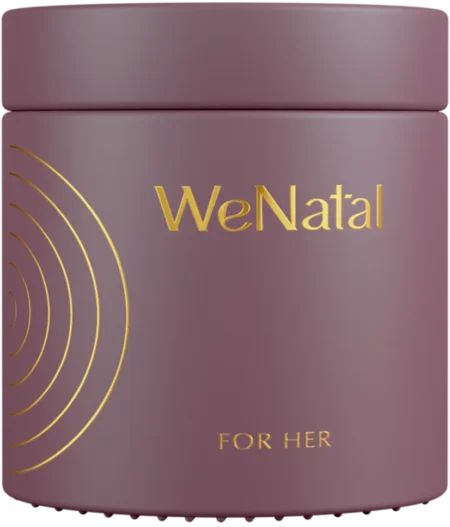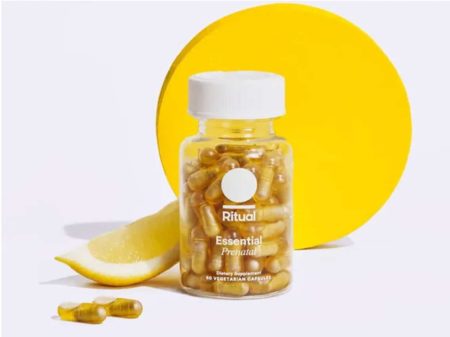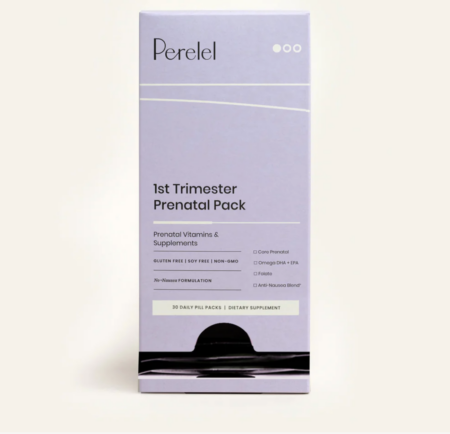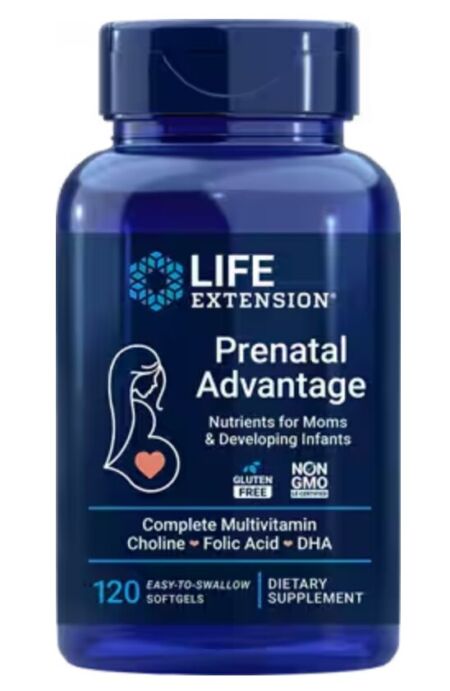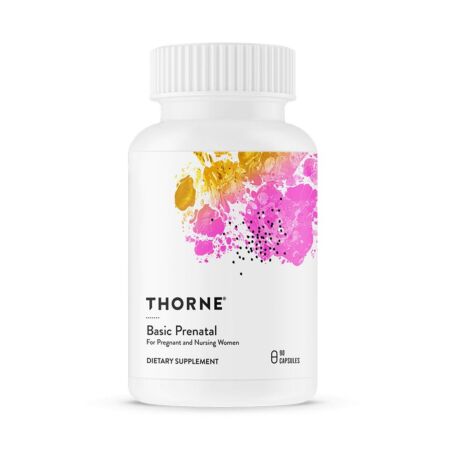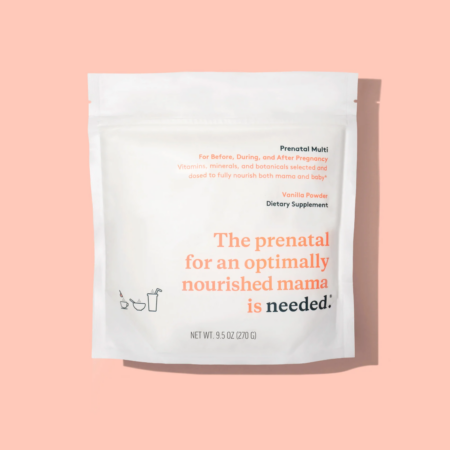Prenatal vitamins may not be accurately labeled, report finds. Here’s what to look for to ensure your safety
Prenatal vitamins are the unsung hero of your prenatal health, working behind the scenes to address the increased nutritional needs during pregnancy, and helping to fill any gaps at the same time. Providing essential nutrients such as folic acid, iron, calcium and iodine (depending on the brand), prenatal vitamins assist in healthy fetal development and support your own health and wellness. Bottom line? Prenatal vitamins are a crucial support system for both mama and baby during this exciting time.
However, results from a recent investigation conducted by the U.S. Government Accountability Office (GAO) suggest that, while taking a prenatal vitamin is an important addition to your healthy pregnancy diet, not all supplements are created equal. The report discovered that prenatal vitamin labels are not always accurate: finding that some of the prenatal vitamins tested had different levels of nutrients than what was listed on their label.
Prenatal vitamin labels may not be accurate
The GAO is a government agency that audits, evaluates and investigates for the U.S. Congress. Since supplements are not subject to the same scrutiny and labeling as prescription drugs, the opportunity for mislabeling and contamination may be greater. In fact, OTC nutritional supplements don’t have to be evaluated for safety or effectiveness by the Food and Drug Administration before reaching stores.
To determine whether supplements are accurately labeled and whether they contain contaminants (like mercury and lead), the GAO tested 12 best-selling and top-rated prenatal supplements for levels of certain nutrients and heavy metals. Unfortunately, the GAO did not release the brand names of the supplements (making it challenging for us to know which ones to stay away from!).
Results revealed that 11 of the 12 supplements had at least one tested nutrient (folic acid, iodine, iron, or vitamin A, C, or E) that, on average, contained an amount outside of an acceptable difference from the amount stated on the label, which could lead to over or underconsumption of these nutrients.
One of the supplements had a folic acid level that “may cause a health concern based on metrics established by the Institute of Medicine” because it was provided in lower amounts than what was indicated on the label. Thankfully, all of the other supplements that had levels of nutrients that didn’t match the label did not deviate at a level that is likely to cause any health concern.
Some other specific findings included:
- 9 of the supplements tested had vitamin A levels in amounts that were not indicated on the label. Seven out of these nine had levels below what was stated on the label.
- 4 of the supplements tested had folic acid at levels below what was listed on the label
- 2 of the supplements tested had iodine at levels below what was listed on the label
According to the agency, none of the nutrients were present at levels higher than the recommended guidelines for any of the supplements.
When it came to heavy metal contaminants found in the supplements, specifically looking at arsenic, cadmium, lead, and mercury, the evaluation showed trace amounts of lead or cadmium in six of the supplements in the sample (the levels were not in amounts that the FDA deems dangerous). The researchers didn’t detect any mercury or arsenic in any of the supplements evaluated.
How to choose a safe prenatal vitamin
Based on the result of this evaluation, some prenatal vitamins may be mislabeled or they may contain trace amounts of heavy metals. The good news is the levels of the heavy metals found were not found in amounts “likely to cause a health concern based on the metrics used by the FDA”, per the GAO report.
Your first step to choosing a safe prenatal vitamin is to try not to panic. It’s important to recognize that this evaluation was conducted on only 12 different supplements. With the prenatal vitamin market value being over $500 million in 2022, it is clear that 12 supplements is a relatively small sample size that may not be reflective of all of the options on the market.
Additionally, even though some of the tested supplement labels didn’t reflect what was found in the supplement, the quantities included appear to be safe to consume during pregnancy—none exceeded the recommended guidelines.
But for those who want to take a supplement that is verified as one that is free from concerning levels of heavy metals and that provides levels of nutrients that are indicated on the supplement label (and not more or less), there is something you can do to give yourself peace of mind.
The importance of third-party testing on prenatal vitamins
It is true that the FDA does not oversee or regulate supplements to ensure their safety and accuracy. But there are third-party organizations that offer this service.
Third-party verification in the context of supplements ensures that the product’s quality, potency and purity have been independently tested and confirmed. This process is crucial as it safeguards consumers from potentially harmful ingredients and ensures that they are getting exactly what is stated on the label. In other words, it’s someone who double-checks on your behalf, giving you the peace of mind that the supplement you’re taking is safe, effective and beneficial to your health. Plus, that you’re getting what you paid for.
To determine if a supplement has been third-party verified, look for a seal or certification mark on its packaging. Renowned verification organizations like U.S. Pharmacopeia (USP), NSF International, and ConsumerLab.com offer seals of approval that manufacturers can display on their products once they pass the verification process. These marks serve as a visual assurance of the product’s quality and safety. Additionally, you can visit the verifier’s website and check their list of certified products. Some brands use separate organizations that offer third-party verification than those that were previously mentioned.
Seeing that a supplement manufacturer follows Good Manufacturing Practices (GMP) is not the same as being third-party verified. GMP is an in-house standard that suggests that products are consistently produced and controlled according to quality standards. It covers the whole production process, from raw materials to the finished product. However, it doesn’t involve a third party, nor does it verify the claims made on the product’s label. Thus, a product can be made according to GMP but still fail third-party testing if, for example, it doesn’t contain the ingredients or strength claimed on the label.
Of course, when choosing a safe prenatal vitamin, you also need to consider which nutrients are being provided by the product, and in which quantities. Choosing a third-party verified supplement doesn’t automatically mean that the nutrients provided by the supplement are safe for your own unique nutritional needs. Choosing your “best” prenatal vitamin should be navigated in partnership with your healthcare provider.
The GAO did not mention third-party verification in their evaluation and assessment.
6 prenatal vitamins that are third-party tested
The good news is that there are many prenatal vitamins that are third-party verified. Here are six that are worth exploring with your healthcare provider:


